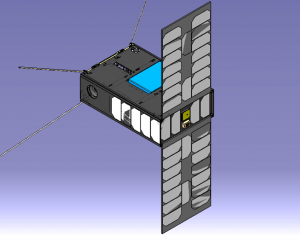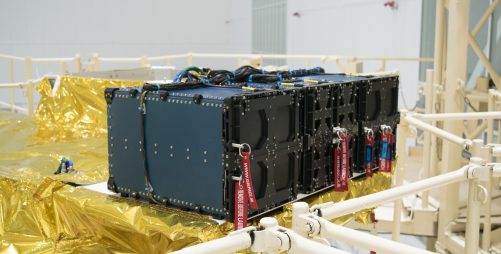KASI SPACE MISSION WILL BE LAUNCHED ON SOYUZ-2 IN 2021
Four KASI 6U Cubesats will be launched on Soyuz-2.1a as part of the rideshare mission scheduled for the Q1-Q2, 2021 in two 12U deployers from the Baikonur Cosmodrome.
A new and very challenging space mission was initiated by KASI since 2017. KASI designed the innovative concept of multi-satellites mission, named as the Small scale magNetospheric and Ionospheric Plasma Experiments (SNIPE). The SNIPE mission consists of four 6U nanosatellites (~12kg), which will be launched into a polar orbit at an altitude of 600 km. Four satellites will be deployed in orbit, and the distances between each satellite will be controlled from 100 m to 1,000 km by a formation-flying algorithm. The science targets of the SNIPE mission are fine-scale morphology of high-energy electron precipitation, background plasma density/temperature, field-aligned currents, and electromagnetic waves. Hence, the mission will observe micro-scale structures of the following geophysical phenomena: high-latitude irregularities such as polar-cap patches, field-aligned currents in the auroral oval, Electro-Magnetic Ion Cyclotron (EMIC) waves, hundreds keV electron precipitations such as electron microbursts, subauroral plasma density trough, low-latitude plasma irregularities such as ionospheric plasma blobs and bubbles.
The Korea Astronomy and Space Science Institute (KASI) is a government-funded research institute located in Daejeon, Republic of Korea.
GK Launch Services is an operator of commercial launches. The company was established by the decision of Roscosmos and is authorized to conclude and implement commercial contracts for the launch of spacecraft using Soyuz-2 family launch vehicles from the Russian spaceports.
Soyuz-2 LV is the most reliable launch vehicle*. Within one mission, Fregat can make up to 3 orbits and provide precise orbital injection for any type of spacecraft, making it uniquely positioned to service customers with varying orbit altitude needs on a single launch.
*The only launcher that delivers cosmonauts and astronauts to the ISS.




